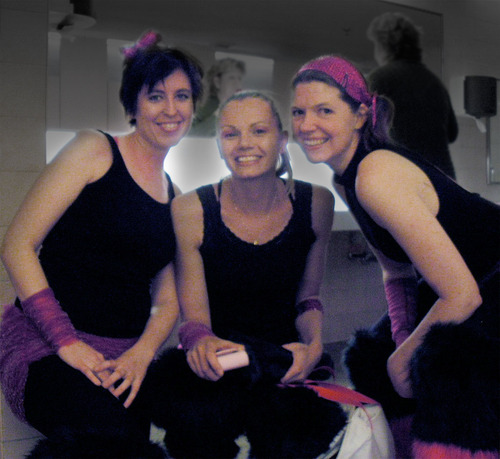Today nearly 2000 people are writing about an influential woman in technology, thanks to Suw Charman-Anderson inviting all and sundry to do so through pledge bank.
I did not start out to have a career in technology. I wanted to be a doctor or a writer. I ended up with a degree in Elementary Education, but before I graduated I met my future husband and he turned me onto a facet of technology that really interested me, communication via computers. Back in those days, any interest in computers also had to involve hardware and understanding much more arcana than today, so when I got my first jobs as an office temp, I was quickly the go-to-girl for printers that didn't work, writing macros for (now extinct) word processors, and generally sorting out the confusion that was pre-Windows office life.
But this post isn't about me or my life in IT. It is about one of the mentors I had along the way.
I was very lucky to land a job in the IT department of Duquesne University in the early 1990s. Lynda Barner-West headed up the group. She was blind to any limitations that others might have placed on women in IT. Our department seemed nearly evenly split between men and women, with us ladies programming, managing, training and tinkering on an equal footing with the men. It seemed slightly revolutionary then, and comparing to IT organizations I know today, I am sure it was.
Lynda was revolutionary in technology, too. She brought our campus computing to the cutting edge, wiring Ethernet in every dorm room well before that was common, and creating not only up-to-date student computing labs, but pioneering computerised classrooms with kiosks, projection systems and a centralised media server. Duquesne was an early adopter of the NeXT platform, too.
Lynda was not only technically astute, but she had a knack for helping her staff to reach their potential. She coached, challenged and sometimes cajoled each of us to top form. We were loyal, hardworking and constantly exploring new ideas. I started out training faculty and staff on using the Internet (remember telnet, ftp, Gopher, and pine?) and later moved into integrating technology into education by developing custom courseware and online classes. I've never worked with a better team of people than the IT department at Duquesne and I know that it was Lynda's influence, even after she had left for another academic computing challenge, that made us all strive to exceed expectations of the administration, faculty and students.
So thank you, Lynda, for giving me an interesting and educational workplace free of gender bias and filled with so many smart and savvy women in IT. Maybe I will write about some of my colleagues for the next Ada Lovelace Day.





Recent Comments